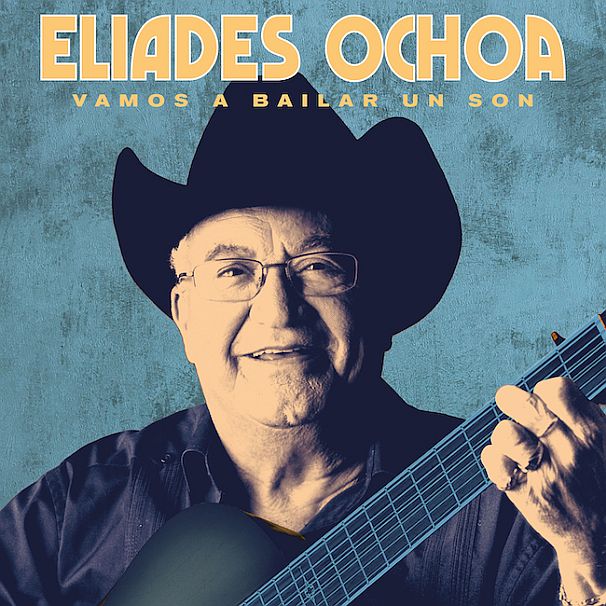
WORLD CIRCUIT / BMG 28th October 2022
Was there ever a more perfect fusion music than Cuban? Bringing a positive out of colonialism and invasion. Tying the African beats brought to Central America by slaves and the Spanish sensibility, infused with the Arabic history of the guitar. And World Circuit, with its Buena Vista Social Club artists, seems determined to prove that the older the artists, the more real it gets. It’s hard to argue; it does seem that their elderly performers seem to have a relaxed perfection, a sense that less is more, that sweat just isn’t cool.
Generally, I’m not up on the history of the acts and my knowledge of Latin beats peaked with the Nu Yorica sounds of Fania Records from the Seventies, documenting the sounds of the Cuban diaspora, but a good record touches the spirit regardless of the listener’s scholarship. Eliades Ochoa is here, the title tells us, to “Come and Sing a Son” (Son being a Bantu / Spanish fusion) and he’s been performing for forty years, making him a newcomer compared to some of the BVSC artists. In fact he was a mere 51 when the Buena Vista album came out in 1997. His songs range from the elegantly hip-swivelling to sad ballads and folk-tinged pieces like ‘Como la Nube Se Impone al Sol’ but throughout are the moving and rolling sounds of the Cuban dancefloor. Quiet they may be, compared to a rock four-to-the-floor but the gentle impact on the hips, feet and head of the clave tapping is substantial and it is almost impossible to sit still throughout this. You may even find yourself doing a quiet shuffle around your living space.
His guitar picks out the key melodies and nearly every song gets a plaintive and simple solo. On songs like ‘Un Bolero Para Ti’ the flamenco flourishes on the guitar are really pleasing, as are the guest spots, like singer Argentina here. Call and response songs push the songs deeper into salsa beats and Eliades into extended notes on ‘Para Ti Nengon’. You’ll hear connections with Willie Colon and Compay Segundo in the old-fashioned sounds and old-time Cuban dancehall rhythms. The voice drips with authenticity and is never strained, finding its way through the lyrics as a complement to the main interest for foreign ears – the seductive beats and the distinctive acoustic guitar. Backing choruses, trumpets and other frills are decoration on the main course of the weaving, dipping and swaying sound of the tropical music. As the last song (before the ‘bonus tracks’) says; ‘Baila Con Mi Corazon’ – ‘dance with my heart’.